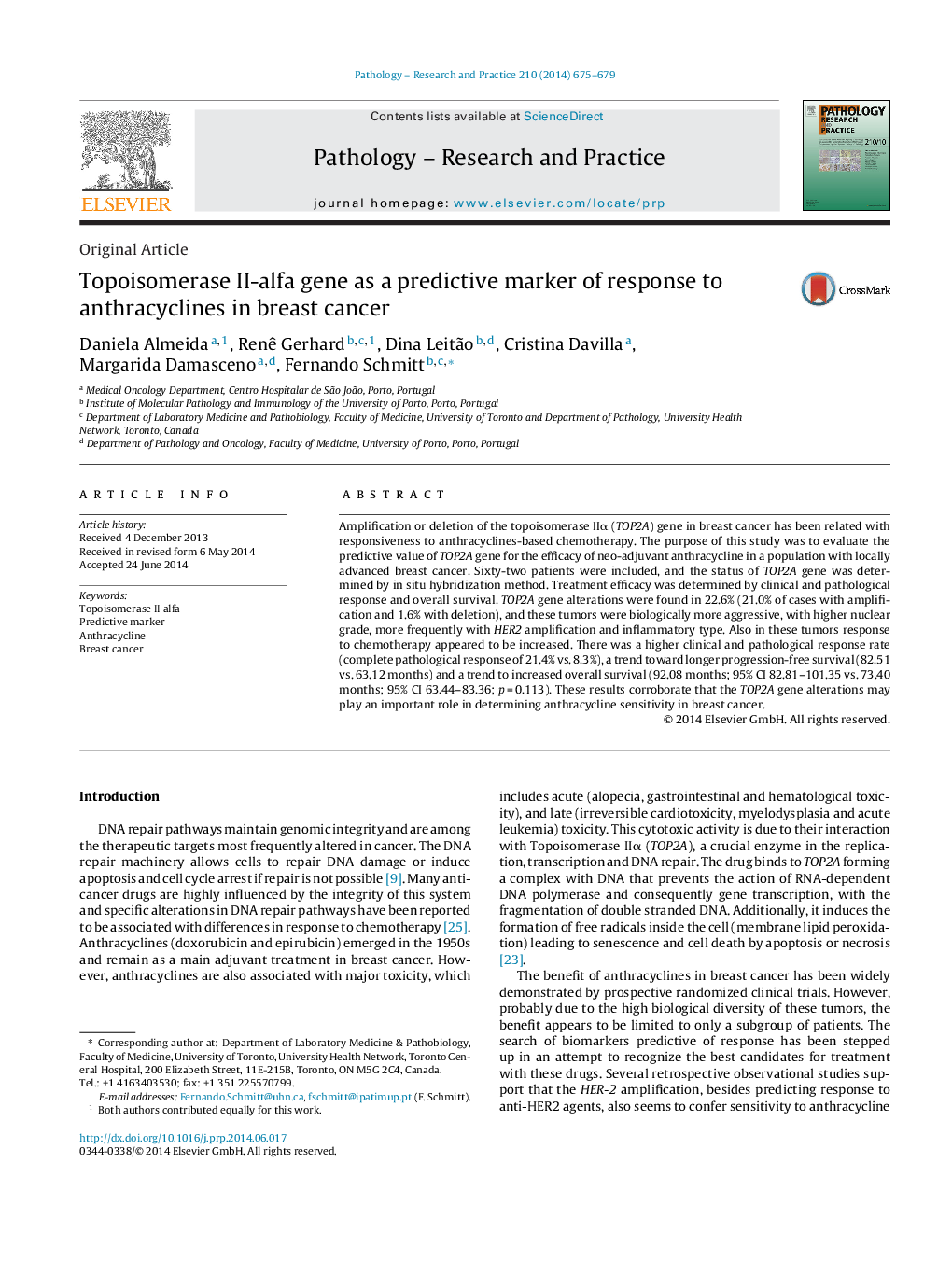| Article ID | Journal | Published Year | Pages | File Type |
|---|---|---|---|---|
| 10916869 | Pathology - Research and Practice | 2014 | 5 Pages |
Abstract
Amplification or deletion of the topoisomerase IIα (TOP2A) gene in breast cancer has been related with responsiveness to anthracyclines-based chemotherapy. The purpose of this study was to evaluate the predictive value of TOP2A gene for the efficacy of neo-adjuvant anthracycline in a population with locally advanced breast cancer. Sixty-two patients were included, and the status of TOP2A gene was determined by in situ hybridization method. Treatment efficacy was determined by clinical and pathological response and overall survival. TOP2A gene alterations were found in 22.6% (21.0% of cases with amplification and 1.6% with deletion), and these tumors were biologically more aggressive, with higher nuclear grade, more frequently with HER2 amplification and inflammatory type. Also in these tumors response to chemotherapy appeared to be increased. There was a higher clinical and pathological response rate (complete pathological response of 21.4% vs. 8.3%), a trend toward longer progression-free survival (82.51 vs. 63.12 months) and a trend to increased overall survival (92.08 months; 95% CI 82.81-101.35 vs. 73.40 months; 95% CI 63.44-83.36; p = 0.113). These results corroborate that the TOP2A gene alterations may play an important role in determining anthracycline sensitivity in breast cancer.
Related Topics
Life Sciences
Biochemistry, Genetics and Molecular Biology
Cancer Research
Authors
Daniela Almeida, Renê Gerhard, Dina Leitão, Cristina Davilla, Margarida Damasceno, Fernando Schmitt,
